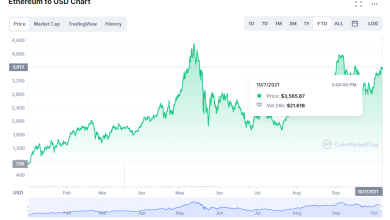Is Ethereum Still the King of Smart Contracts?

In the fast-evolving world of blockchain, where competing chains vie for developers and investors, one question looms large: does ETH, the pioneering platform for smart contracts, still wear the crown? Since its launch in 2015, ETH has been the bedrock of decentralized finance (DeFi), non-fungible tokens (NFTs), and decentralized applications (dApps).
Yet, with faster and cheaper competitors like Solana and Binance Smart Chain rising, is ETH’s reign at risk? As of October 2025, this article dives into the current landscape, backed by recent data, to assess whether ETH remains the undisputed king or if its throne is wobbling.
ETH: The Unshakable Leader in Trust and Ecosystem
ETH is more than a blockchain; it’s a sprawling ecosystem that powers millions of developers worldwide. With upgrades like The Merge in 2022, shifting to Proof-of-Stake (PoS), and Danksharding in 2024, ETH has become more efficient and secure. In 2025, it remains the most trusted platform for smart contracts, hosting the majority of major DeFi projects.
Recent data shows ETH leading in Total Value Locked (TVL) at $85.7 billion, dwarfing competitors and reflecting investor confidence in its security and stability. Its price is nearing all-time highs, with analysts predicting a climb to $10,000 by year-end, driven by institutional adoption. What makes ETH truly unique? Its developer network, with over 4,000 dApps, makes it the go-to choice for enterprises and developers prioritizing reliability over raw speed.
Bold Challengers: Solana and Others Threaten the Throne
Despite ETH’s dominance, competition is fiercer than ever. Solana stands out as a top contender, boasting lightning-fast transactions (up to 65,000 TPS) and near-negligible fees compared to ETH’s occasionally high gas costs. In 2025, Solana’s TVL hovers around $9 billion, with rapid growth in users and dApps. However, Solana’s history of outages raises concerns about reliability, making it less appealing for mission-critical applications.
Binance Smart Chain (BSC) excels in adoption, leveraging integration with the Binance exchange and a market cap of $155 billion. Tron and Cardano also compete, with Tron focusing on low-cost payments and Cardano emphasizing research-driven development. Here’s a snapshot comparison based on 2025 data:







